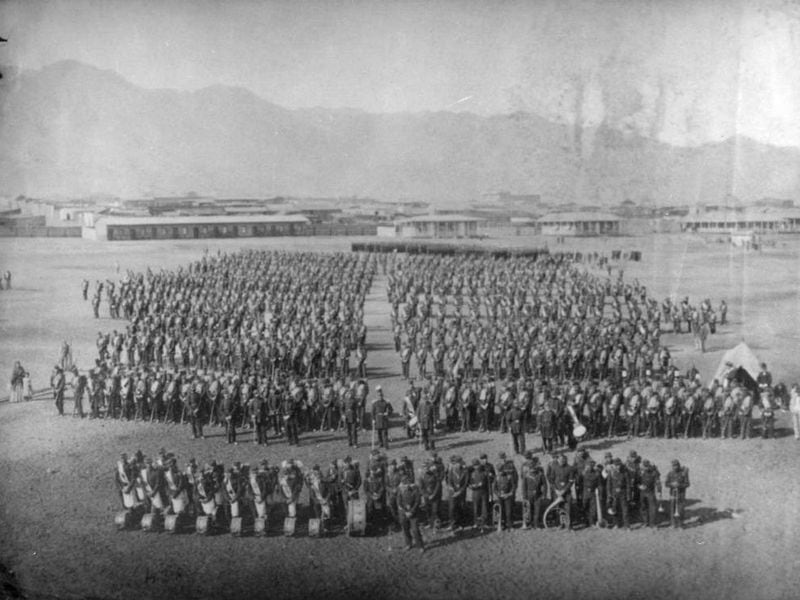A forgotten book from 1923 reveals that the name of the famous character Marcela Paz was already used in Chilean literature. And in a protagonist with a much more raw and realistic story, which intersects with the beginnings of the supplement activity in the country.
In the universe of Paperucho the situations are numerous. He was almost an orphan, he was lost, he was a detective, a missionary, among other things. The famous character of Marcela Paz appeared in 1947, at the time of radical governments, the beginnings of the Cold War and the independence of India from the British Empire. The author presented it as part of a competition organized by the Rapa Nui publishing house. It is known that the name comes from the nickname of her husband, José Luis Claro, “Pepe Lucho”.
But the name had already appeared before in Chilean letters. And also in a childish character, although very different from the one designed by Marcela Paz. He is the protagonist of the novel Brave butterfly, a novel by Víctor Domingo Silva published in 1923 by the thriving Nascimento publishing house. Generally speaking, he is a child in a particular time; on the eve of the outbreak of the Pacific War.

José Luis, “Papelucho”, was born into a family plunged into poverty. A very common reality in Chile at the end of the 19th century. Like many children of the time, the streets were his school and racing through the hills of Valparaíso his entertainment. “Papelucho had acquired, at only ten years old, all the popularity of a leader, among the group of scoundrels who operated in the Cerro de la Cordillera and its surroundings. His service record was undoubtedly the most splendid and complete.
Basically, the boy was just wandering around. “And leaving the next morning, alone or in the company of other more expert birds of prey, He began to wander, crisscrossing alleys and passages, rummaging in garbage dumps, riding lazy donkeys and pigs. rushing down muddy slopes, chasing rats in riverbeds, shouting at the edge of wells, waging brutal war on cats on roofs, pillaging nests, plundering fruits and flowers from the fences of poor houses, entering the war’ in the circus tents,” says the author.
But the moralizing style of the time crept into the book. The author offers a narrative arc in the style of the hero’s journey, or rather, in the tone of the time, from savage to civilized. “The fact is that he no longer wanted to continue being as he was until then, a ravine mouse.” , piers and quays. The semi-wild freedom he had always enjoyed no longer tempted him: the butterfly had had enough of him,” he says.
A key moment occurs there. The outbreak of the Pacific War shakes the boy. The campaign to the north was the subject of conversation and the presence of sailors in the port made it much more visible. Activity was intense and the international presence was noticeable in the port. Thus, Papelucho led him to a nascent profession, that of supplementer. So out loud he sold supplements The homeland and The Mercury.

“The growing intensity of sensationalism, the desire for information about war operations in very distant regions , and at a time when there was no telegraph, curiosity, in a word, eternal generator of innovations, gave birth to a commercial branch unknown until then: the street and the rapid sale of “supplements” , which in summary anticipated the information in the newspapers. . Our hero, it must be said in honor of the truth, joined the new guild among the first and was one of its most eminent representatives,” details the novel.
According to chronicler Eulogio Gutiérrez, this is when the profession of substitute appeared. “The supplement was born in 1879, when newspapers launched their hourly bulletins, to calm the anxiety of the public who demanded news of the events of the war that the Republic was waging against Peru and Bolivia.
In fact, the boy manages to be recruited to fight in the war. “So here is our beloved Papelucho, transformed into the drum of the Atacama Battalion. . The box – as people call it – was almost as tall as he was and so heavy that it forced him to walk backwards to stay balanced. And that’s how he fought the whole war, Papelucho.” So he went from an adventurous boy from the hills of Valparaíso to a soldier in the Pacific War.
So far there is no known data linking the protagonist of the event Brave butterfly with the character of Marcela Paz . But somehow, with different narrative styles and approaches, both delved into the childhood of the time. Who knows if the adventurous spirit of the palomilla of Buenos Aires influenced the dreamy and restless child who would become famous in Chilean popular culture.
Continue reading in Cult
Source: Latercera
I’m Rose Brown , a journalist and writer with over 10 years of experience in the news industry. I specialize in covering tennis-related news for Athletistic, a leading sports media website. My writing is highly regarded for its quick turnaround and accuracy, as well as my ability to tell compelling stories about the sport.


